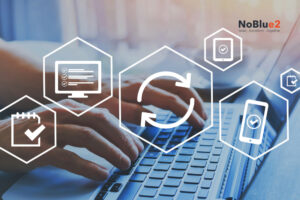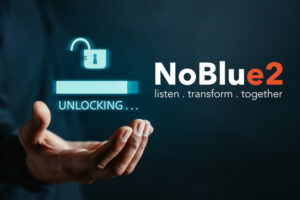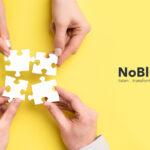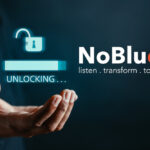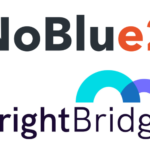All business software needs to constantly evolve and improve, so that it is always capable of meeting the changing business landscape. After all, we need modern tools to address modern challenges.
ERP is no different. But businesses are often hesitant about upgrading their legacy ERP systems. It involves a certain amount of upheaval and disruption, entails extra costs and demands time and effort from your staff.
If you have noticed that your ERP is no longer serving your growing needs or sense that a more advanced system could propel your business forward, you may be wondering when the best time is to upgrade your ERP. The answer is simple – the time is now.
The Limitations of Older ERP Systems
Making the decision to dispense with your legacy ERP is not always clear cut. But there are some tell-tale signs that your current system may no longer be serving you well.
One red flag is when the manufacturer ends its support of your software. If it is no longer going to be updated or maintained by its provider, your software will start having problems, perhaps experiencing glitches or being incompatible with other new systems you implement.
Software that uses old technology might not work as well as more modern applications and it is highly likely to be missing some essential new features. It may suffer from more frequent crashes or seem to need ever more fixes and patches to keep it stable.
Older systems may not even work on newer servers, which would mean you are unable to upgrade your hardware to take advantage of faster processing speeds, leaving you plodding along with slow and less responsive software.
If your legacy ERP is hosted on-site, your updates can be more complex. You and your department heads may be hesitant to pause operations for modifications or critical updates and even standard maintenance can get sidelined. Consequently, your on-site software may be lagging behind and could be operating on an outdated version.
Neglecting regular updates can age your system, ultimately hindering your company’s progress and adaptability. As your company flourishes and evolves, outdated software will struggle to keep pace.
Why Make the Move to NetSuite?
There are a number of benefits of making the move from your legacy ERP to NetSuite.
Cloud-Based Architecture
NetSuite is a cloud-based system. Its anytime, anywhere access ensures that teams can collaborate and work seamlessly, irrespective of their geographical location. All your staff need is a device with a web browser and internet connection, allowing them to work from home, while on client sites or even while commuting or travelling.
Additionally, there are large cost-savings to be made with the cloud as you don’t need to maintain on-premises IT infrastructure, like servers, server rooms and expensive air-conditioning.
Nor do you need specialist IT staff to maintain the software or pay for frequent updates. This is all included in your subscription fees and is carried out by NetSuite itself in the background.
Scalability and Flexibility
NetSuite is extremely scalable and flexible, ensuring it remains tailored to suit your business as it scales or evolves.
Whether you are growing rapidly or simply navigating market changes, NetSuite adapts seamlessly, ensuring no disruption to your business. It’s simple and cost-effective to add new users as you grow – or even scale back for a while if you need to.
NetSuite’s module-based approach allows you to pick and choose the functionalities that align most closely with your specific needs. Plus, with a wide range of SuiteApps, you can create a truly custom solution that meets your unique requirements, rather than persisting with a one-size-fits-all system.
Modern Features
NetSuite offers a comprehensive solution, with a host of modern features in a single platform.
It’s a unified suite that consolidates ERP, finance, accounting, CRM and more. Operating on a single database, it reduces data fragmentation and enhances cross-company collaboration. With this centralisation, your processes are streamlined and automated, which maximises operational efficiency.
Supply chains these days are increasingly globalised, requiring sophisticated management tools. NetSuite provides these, along with real-time tracking and analytics that help manage these complexities. NetSuite provides data and analysis for immediate insights, which can help you to quickly make informed decisions. It has integrated dashboards that offer a clear view of your metrics, ensuring you always know how you are performing and which goals are being met.
NetSuite is modular by design, allowing it to cater to diverse industries. With specialised features for ecommerce, warehousing, manufacturing and professional services, it is a truly versatile tool for all businesses.
Never Upgrade Again
A standout benefit of NetSuite is that you will never need to upgrade again. Thanks to its cloud-based infrastructure, your updates are all seamlessly completed with zero downtime, ensuring continued operation and no business interruption.
NetSuite is constantly being enhanced, too. With two major annual upgrades and regular minor improvements and refinements, you benefit from a platform that’s always up to date. If there are changes to financial regulations, tax rates and currency exchange rates, these are all catered for.
Why is Now the Right Time to Change Your Legacy ERP?
If your legacy ERP is beginning to cause you frustrations, then now is definitely the right time to move on.
It takes time to establish a project team, assign responsibilities, set budgets and determine realistic timeframes. You need to get buy in from across the company and seek input from all users about their requirements.
Scoping out your requirements to establish which functionality you require entails a careful appraisal of your legacy system and your business processes to identify the pain points in your current software and ways of working.
The requirements gathering process is a detailed one. You will want to build a comprehensive list of the functionality you want from a new ERP and you may also like to order this by priority, so that essential aspects are distinct from those that you see as optional.
Then you need to assess software that fits your needs and suppliers who can provide and customise it. Larger companies will want to undertake formal tendering processes, putting out a request for a quote, proposal or an invitation to tender.
Considering the intricacies of the process – from establishing the project team through to putting out your requirements – the journey from a legacy ERP to a new system isn’t a quick one. It demands meticulous planning and comprehensive and methodical assessment.
Delaying the transition only prolongs the challenges you face with your legacy ERP system. Given the time-intensive nature of the change, it makes sense to start the process sooner rather than later. In essence, now is the time to move on from your legacy ERP and embrace a system better suited for your evolving needs.
Don’t let outdated systems hinder your progress. If you would like to enhance your operations with a modern tool and position your company for success, now is the time to take action. Contact us today to find out why NetSuite might be the best software for your needs.

